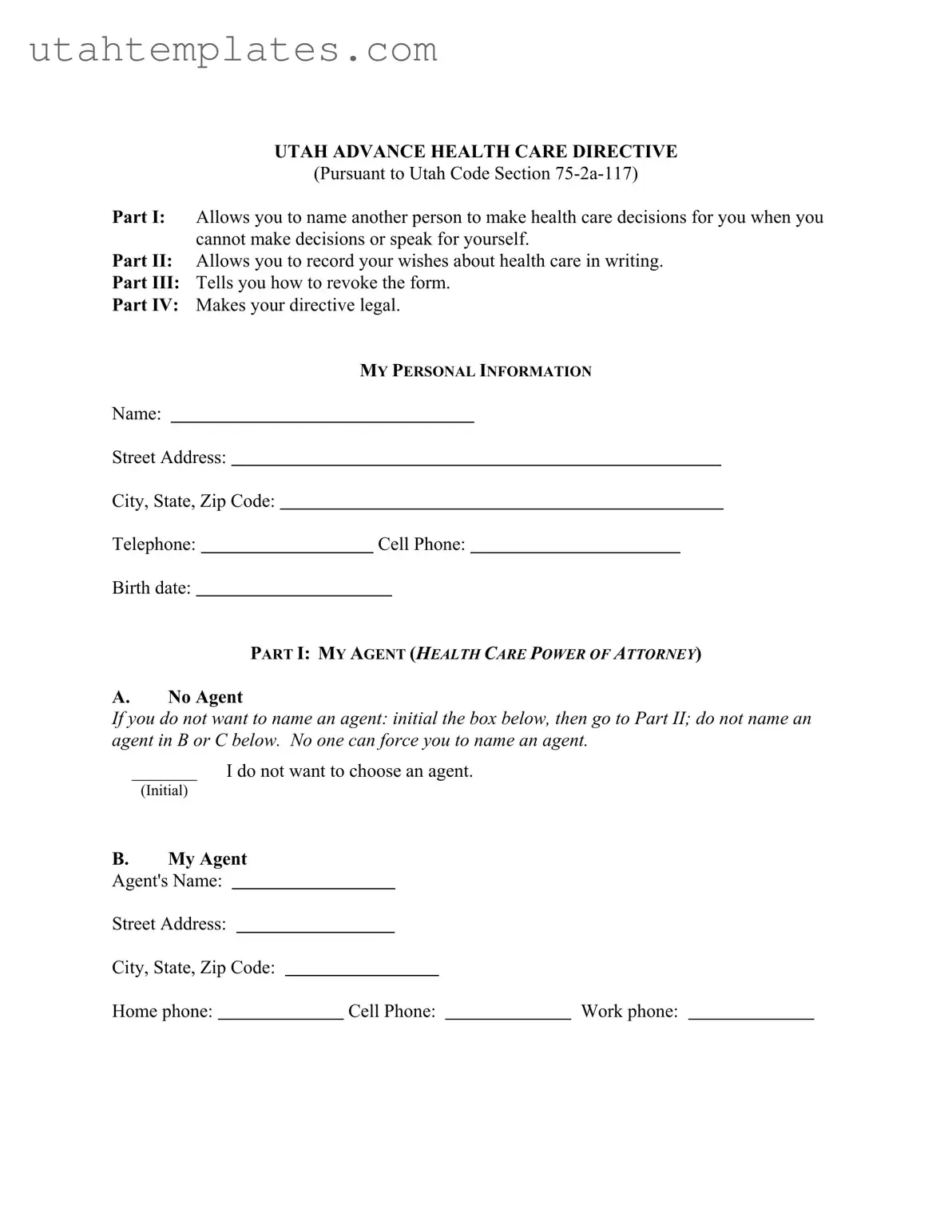Blank Utah Advance Health Care Form
The Utah Advance Health Care Directive is a legal document that allows individuals to appoint someone to make health care decisions on their behalf if they are unable to do so. This form also provides a space for individuals to outline their health care wishes in writing. Understanding this directive is essential for ensuring that your preferences are respected during critical moments.
Launch Utah Advance Health Care Editor Here

Blank Utah Advance Health Care Form
Launch Utah Advance Health Care Editor Here
Need to check this off quickly?
Fill out Utah Advance Health Care online without dealing with paper.
Launch Utah Advance Health Care Editor Here
or
Free PDF File



